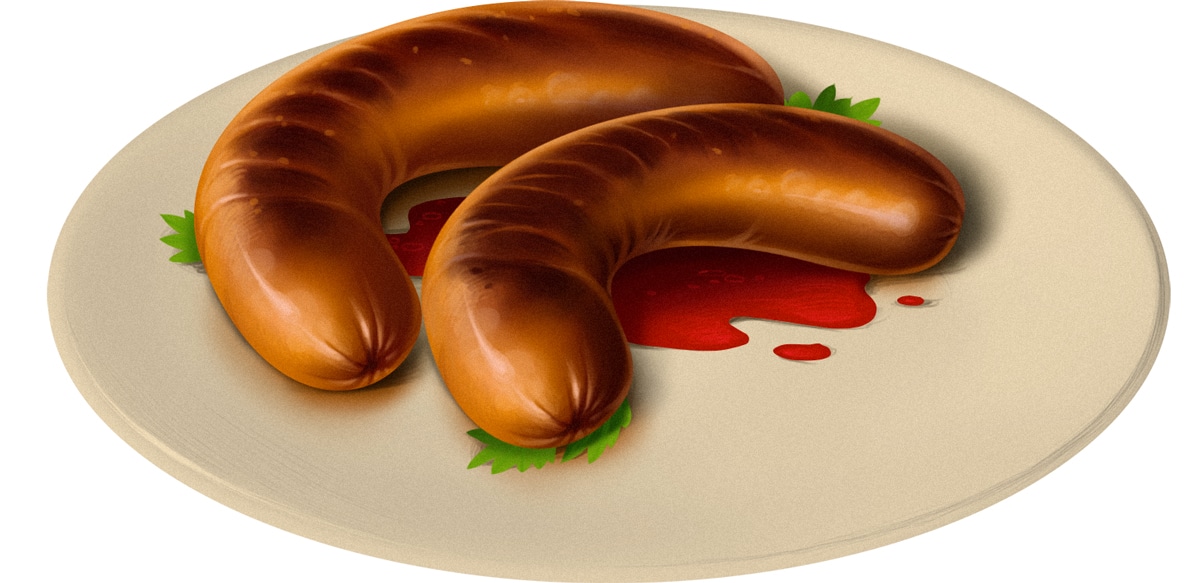
The Science of an Energizing Breakfast
There’s a lot of confusion about exactly what makes for a “good” breakfast, but here’s a quick look at some relevant research:
- Protein is important. Following this study, all of the meals below have at least 20 grams of protein.
- Getting the right kind of carbs can help. Specifically, studies like this one and this one have found that fiber-rich carb sources at breakfast can improve energy and mood throughout the morning.
- Match carbs to protein. This study found that subjects got post-breakfast blood sugar crashes only if they ate more carbs than protein. A 4:1 ratio of carbs to protein caused blood sugar problems, but a 1:1 ratio (equal amounts of carbs and protein) didn’t. A 1:4 ratio of carbs to protein (meaning that the subjects ate more protein than carbs) also didn’t cause any problems.
Of course, some people feel best with very few carbs in their diet in all. So in deference to the low-carb crowd, each suggestion below has both a higher-carb and a lower-carb option.
From a Paleo perspective, an energy-friendly breakfast should also be anti-inflammatory. Inflammation is a huge mood and energy suck, and it’s a possible reason for daytime sleepiness.
So to sum up, a fatigue-fighting breakfast should have a decent amount of protein. If it has carbs, they should come from fiber-rich whole foods and there shouldn’t be more carbs than protein. The breakfast should also be anti-inflammatory. With that in mind, check out 5 travel-friendly, energy-boosting Paleo breakfasts.
1. Creative Egg Bakes
For the restless, the easily bored, and the enthusiastic experimenters-with-new-vegetables, these options are simple to bulk prep for the week but give you a little more scope for creativity and mixing things up.
Carb-friendly option: Twice-baked sweet potatoes with eggs
Protein: 20.3 grams
Carbs: 20.75 grams
Ratio of carbs to protein: around 1:1
Anti-inflammatory highlights: eggs are high in healthy fats but very low in inflammatory PUFA (learn more about PUFA here). Sweet potatoes are high in vitamin A while white potatoes are high in vitamin C - both have powerful antioxidant activity.
Modifications: replace the sweet potatoes with white potatoes (equal carbs), curried purple potatoes (equal carbs) or beets (slightly lower in carbs); add any vegetables or spices/seasonings you like...
Low-carb option: Oven-baked Vegetable Omelettes: keep the eggs and coconut milk, but replace the vegetables in the recipe with any low-carb vegetables you like.
Protein: 21 grams
Carbs: 6 grams
Ratio of carbs to protein: between 1:3 and 1:4 (in other words: 3-4 times as much protein as carbohydrate in this meal)
Anti-inflammatory highlights: like eggs, coconut milk is full of healthy fats and has essentially no PUFA; that’s without mentioning the vegetables.
2. A Real Stick in the Meat
Way more fun than a stick in the mud...it's a stick in the meat! Breakfast doesn’t have to be all about eggs: One simple and easy way to make non-egg breakfasts is to do kebabs (also spelled kabobs). They’re so easy to make in bulk, and you can either slide them off the sticks to eat with a fork or just pick up the skewer and go to town for a handheld A.M. treat.
Carb-friendly option: Ham and Pineapple Skewers: if you ever enjoyed cold leftover pizza for breakfast, you’ll love these as a make-ahead breakfast treat.
Protein: 27 grams
Carbs: 26 grams
Ratio of carbs to protein: around 1:1
Anti-inflammatory highlights: pineapple is rich in antioxidants, including vitamin C.
Low-carb option: Grilled Asian-Balsamic Steak Skewers (nutrition given for ⅙ of the recipe - the recipe makes 4 dinner-sized servings, but that's a bit more than most people want for breakfast. For breakfast-sized servings, you could easily get 6 from this recipe)
Protein: 30 grams
Carbs: 10.3 grams
Ratio of carbs to protein: 1:3 (3 times as much protein as carbohydrate)
Anti-inflammatory highlights: when meat is served with balsamic vinegar, melanoidins in the vinegar may help protect the fats in the meat from inflammatory oxidative damage. Plus there’s all that delicious polyphenol-rich olive oil.
3. Seafood Spectacular
From the perspective of fighting inflammation, it’s hard to get better than seafood. Fish are high in antioxidant minerals like selenium, inflammation-fighting omega-3 fats, and other goodies that make them one of the most anti-inflammatory foods around. The protein in the fish is a great source of long-lasting energy, and it’s easy to add some complex carbs for even more breakfast power (or not, if that works better for you)
Carb-friendly option: Breakfast casserole with salmon and hash browns: use this recipe, but substitute 8 ounces of smoked salmon (or half a can of drained canned salmon) for the sausages.
Protein: 24.75 grams
Carbs: 16.25 grams
Ratio of carbs to protein: about 1:1.5
Anti-Inflammatory highlights: eggs and salmon, plus onions and garlic to add those tasty plant antioxidants.
Low-carb option: Grilled garlic and lime salmon fillets - these are delicious served cold the next day, with a little bit of mayo on top if you feel that they’re too dry.
Protein: 40 grams
Carbs: 7.1 grams
Ratio of carbs to protein: about 1:6 (6 times as much protein as carbohydrate)
Anti-inflammatory highlights: on top of the salmon, this recipe is also rich in anti-inflammatory garlic and fresh herbs.
4. The Utilitarian
For the superheroes too busy saving the world to worry about fancy breakfasts, but too health-conscious to go through the drive-thru at Dunkin Donuts, check out these minimalist breakfasts - they get you the nutrition you need without the fuss.
Carb-friendly option: 3 hard-boiled eggs + one baked sweet (or white) potato.
Protein: 21.1 grams
Carbs: 20.9 grams
Ratio of carbs to protein: around 1:1
Anti-inflammatory highlights: on top of being low in PUFA, free-range eggs are also rich in carotenoids, the antioxidants that give their yolks that deep orange color.
Low-carb option: Grilled chicken breast with vegetables
Protein: 30.5 grams
Carbs: varies, depending on the vegetables. If you have half a pepper + half an onion, it’s 6.7 grams.
Ratio of carbs to protein: between 1:4 and 1:5 (4 to 5 times as much protein as carbohydrate)
Anti-inflammatory highlights: vegetables for breakfast is about as anti-inflammatory as you can get - especially if you cook them in polyphenol-rich olive oil.
5. What a Sausagefest!

Continuing the egg-free theme, what about that other breakfast staple meat: sausages are fun because they come in so many different flavor varieties, from spicy chorizo to sweet maple-bacon.
Carb-friendly option: Simple Sausage Casserole (made with 5 sausages and 2 large sweet potatoes for 4 servings)
Protein: 21 grams (Exact number will depend on the type of sausages you use)
Carbs: 24.75 grams
Ratio of carbs to protein: almost 1:1 (technically 1:1.2)
Anti-inflammatory highlights: this recipe is full of lycopene-rich tomatoes, even before you get to the other vegetables and the sweet potatoe.
Low-carb option:Southwest Sausage Skillet: for one week of breakfast, fry up 1 lb of sausage with kale, onions, garlic chili powder, salt, and pepper. You can use loose sausage meat or sausage links chopped into pieces.
Protein: 24.1 grams (Exact number will depend on the type of sausages you use)
Carbs: 10.1 grams (for 1 cup kale and ½ onion)
Ratio of carbs to protein: between 1:2 and 1:3 (2-3 times as much protein as carbohydrate)
Anti-inflammatory highlights: it’s got kale, so you know it’s super healthy - and that’s without mentioning the chili powder.
What’s your favorite breakfast for all-morning pep? Let us know on Facebook or Twitter!





Leave a Reply